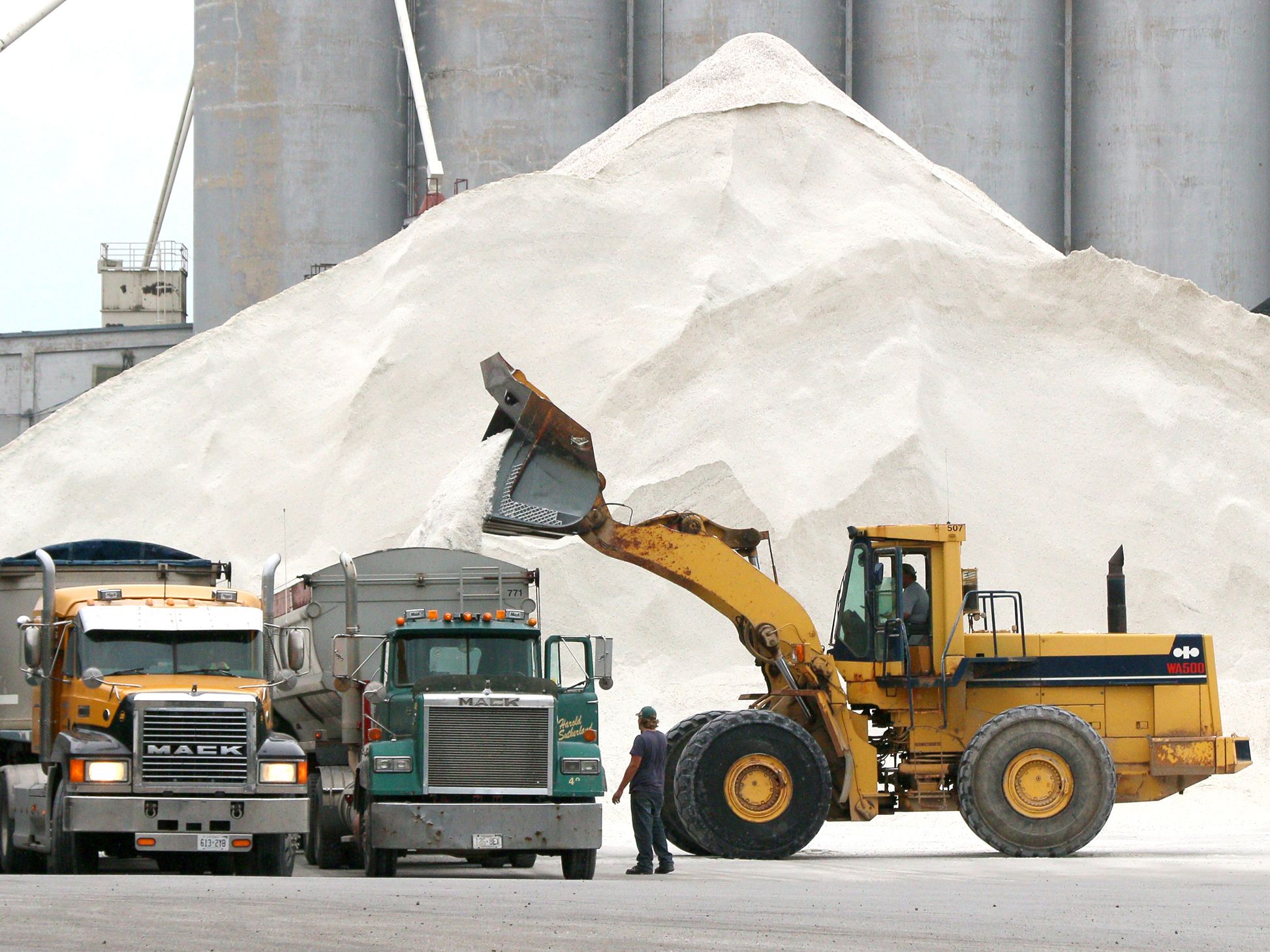Toronto's road salt quickly flows into Lake Ontario, and I'm aware of no significant salinity concerns in Lake Ontario - which isn't a surprise given the short residence time. Of course we should try and minimize as much as possible; but to a great extent, it's the lesser evil.
Lake Ontario is fortunate to be a large lake. Most of our road salt ends up on forest floors, farm fields, and our water systems. It dissolves leaving the chloride to enter nearby water systems through runoff and leaching.
Chloride tests in Credit Valley in Mississauga found that in the winter, chloride levels exceeded 5,000 milligrams per litre. At Cooksville Creek, it was 18,000 milligrams per litre. The average chloride level in oceans is 20,000 milligrams per litre.
Environmental researchers in the Greater Toronto Area say road salt runoff is making some local waterways as salty as seawater.

www.cbc.ca
"In 2011, well before the Flint disaster, Michigan’s Mackinac Center for Public Policy pegged the total damage done by road salt as high as $687 CDN per tonne. In Minnesota, damage estimates ranged between $1000 CDN and $5000 CDN per tonne. Canada uses at least seven million tonnes of salt per year, according to 2009 estimates by Environment Canada.
Using the Mackinac Center estimate, that’s $4.8 billion in damage per year — $1 billion more than the $3.6 billion damage caused by the Fort McMurray wildfire."
Also evidently, road salt is killing people too.
"Salt was a key contributor to the deadly 2006 collapse of the De La Concorde bridge in Laval,
killing six people. After the Algo Centre Mall in Ontario’s Elliot Lake collapsed in 2012,
killing two people, forensic analysts said the building’s steel supports looked like they had spent decades marinating in sea water."
Bringing down bridges, melting cars, poisoning rivers; it's hard to think of something salt isn't ruining

nationalpost.com
I doubt that most people are more concerned about some stains on boots than more injuries and deaths!
It's not just stains, but genuine wear and tear. I think most people should be more concerned about roads, bridges, and large-capital infrastructure, but I threw that in there to add a little bit more personal impact.



